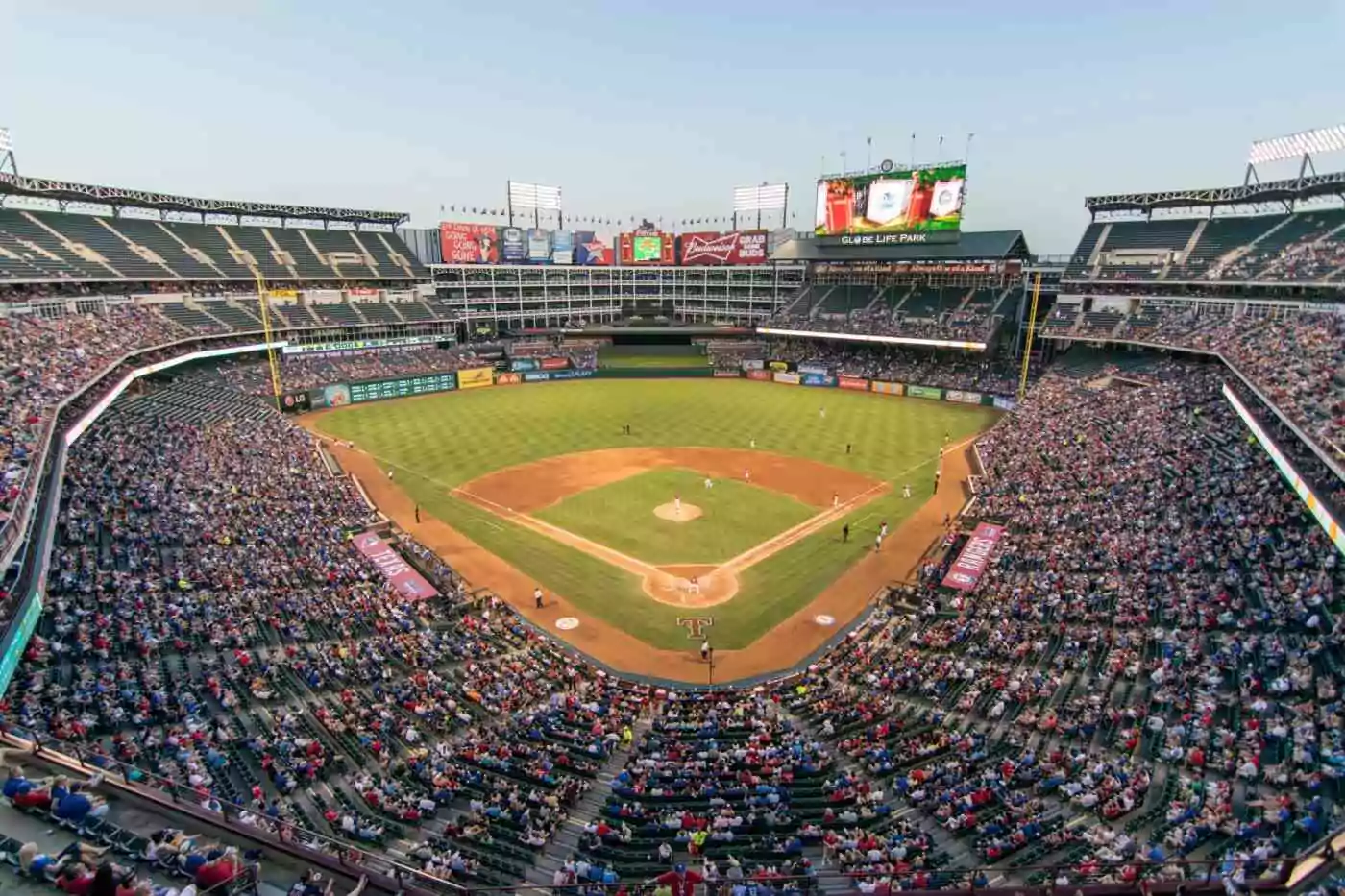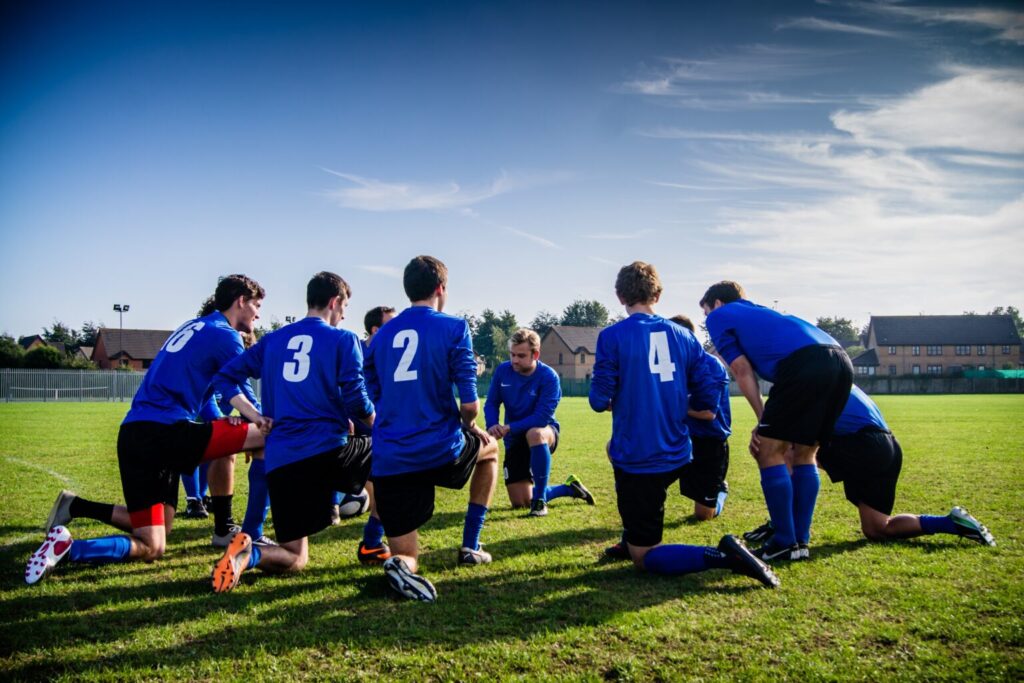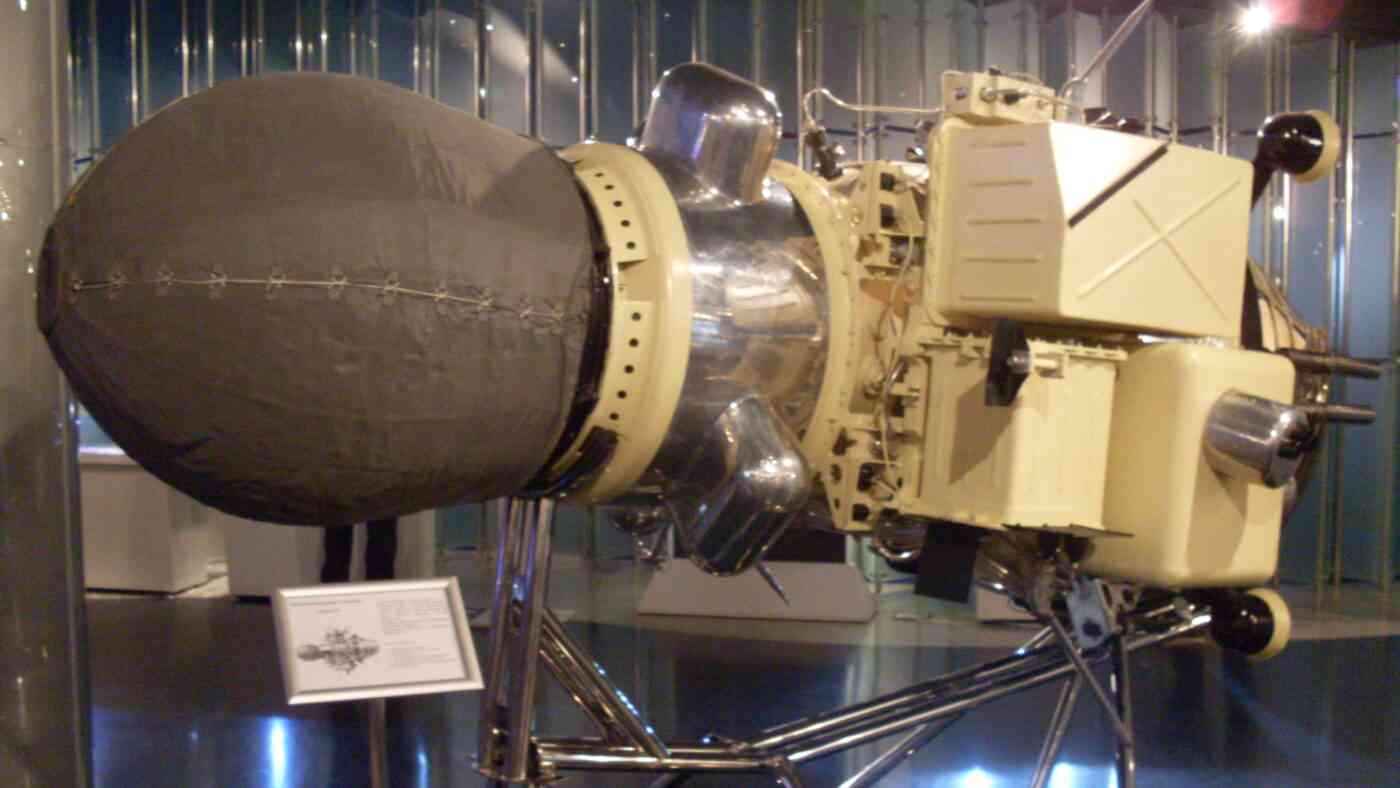Science
Lost on the Moon for 60 Years: AI Joins the Search
23 February 2026

Sport doesn’t take place in a social vacuum. It doesn’t matter if it’s soccer, basketball, or tennis—the political context shapes both the discipline itself and the way we react to any sporting competition.
In August, the news media—not just the sports channels—jumped on the controversy surrounding the matches of a Ukrainian tennis representative—Elina Svitolina. During both Wimbledon and the Paris tournaments, the Ukrainian sportswoman refused to shake hands with her rivals from Russia and Belarus, igniting the ire of fans watching the games in the process. They did not understand the context and accused Svitolina of being disrespectful towards her opponents. She on the other hand held a different point of view, saying, “We didn’t shake hands because the girl is from Russia basically. It’s no secret why I didn’t shake [hands with her], because this country actually attacks Ukraine. So yeah, this is sport, I understand, but it’s also [a] kind of political thing. So, yeah, it [was] nothing personal.”
During the press conference held before the start of the competition in Washington, Steve Simon—the chief executive of the Women’s Tennis Association—shared the news that every time a match was about to start in which Svitolina would partake and not shake hands with her rival, the fans in the stands would be shown an announcement and an explanation beforehand. Is this approach an unnecessary precedent in the world of sports, or perhaps just a simple gesture to stress the right of every sportsperson to be an entity unto themselves? Maybe it’s a good moment to try and figure out why sports fans react so vehemently to the presence of political gestures in stadiums, tennis courts, and elsewhere.
Back in the days when sport was something more than just a gigantic entertainment industry, Dutch historian John Huizinga published the book “Homo Ludens. A Study of the Play-Element of Culture,” in which he stressed that play and rivalry within communities are essential for creation and sustaining of culture. He also coined the term “magic circle” to describe the space in which the everyday rules are suspended in favor of a temporary reality, where a new order and a set of clear rules are established, e.g. during a play or a sporting event. The way Huizinga understood it, in such instances people act like they are under a spell. In contrast, those who act against the accepted rules might be called “spoilsports” as they break the spell.
“[…] the spoil-sport shatters the play-world itself. By withdrawing from the game he reveals the relativity and the fragility of the play-world in which he had temporarily shut himself with others. He robs the play of its illusion—a pregnant word which means literally ‘in-play’ (from inlusio, iludere or inludere). Therefore he must be cast out, for he threatens the existence of the play-community.”
That’s why—according to a lot of sports fans—players or activists that introduce politics into the magic circle of competition become the “spoilsports,” and therefore tarnish the spirit of pure fun and rivalry. The explicitness of the social and political milieu might eclipse the tribal and ludic character of sport. Nevertheless, it’s hard to detach sport from its social foundations, as those foundations contribute to its value and significance.

In 1967, Muhammad Ali refused to be conscripted into the U.S. Armed Forces. The boxer opposed the war in Vietnam and remarked in an interview, “Why should they ask me to put on a uniform and go 10,000 miles from home and drop bombs and bullets on brown people in Vietnam while so-called Negro people in Louisville are treated like dogs and denied simple human rights?” As a result, his heavy-weight champion title was revoked, and yet this very attitude led many Americans to redefine their own views of the war.
In 2021, we witnessed an acrimonious discussion over the case of “taking the knee” before the start of every major sporting event in the world. The aim of this act was to bring attention to the ever-prevailing problem of systematic racism in the United States. Most of the English soccer fans were in favor of the gesture, although only one third of them thought that it was a meaningful way of fighting racism. Other “footy lovers” from the British Isles were of the opinion that taking a knee translated into endorsement of the “Marxist” Black Lives Matter movement, which clearly shows how much outrage political acts can generate in the world of sports. One might wonder if the bras d’honneur gesture made by a Pole and a pole vaulter (pun not intended) Władysław Kozakiewicz (henceforth known as “Kozakiewicz’s gesture” in Poland) at the 1980 Olympics in Moscow would today polarize audiences in a similar fashion.
Modern sport encompasses nearly all the characteristics found in politics, and revs them up to eleven. Every championship is overseen by gigantic corporations, such as FIFA (Fédération Internationale de Football Association) or the ICO (International Olympic Committee), which usurp the right to protect the cultural heritage and capitalize on trademark use, commercialization activities and expanding different sport franchises to different countries.
If you look at the history of the Olympics and the soccer championships, you can clearly see that the events of this type are a source of profits mostly for the international sport organizations and their sponsors. The influence of any local authorities is always severely restricted, not to mention they have to foot the gargantuan bill for holding the show. It’s worth mentioning that the debts amassed on the occasion of the 1976 Olympics in Montreal were not paid up by the Canadian government until 2006. Other side-effects of these ordeals include years-long environmental degradation and transformations that have to be endured by the local communities, such as mass displacements from any areas that are intended for the construction of sports facilities.
The term “sportswashing” refers to a practice of redeeming a bad reputation through sport. Both countries as well as private companies might decide to opt for this tactic. According to Amnesty International, Saudi investments in sport are a clear indication of sportswashing, and are used to hide the increasingly repressive measures implemented by the government. Blatant violations of human rights are not stopping the influx of the greatest sports stars into the Kingdom of Saudi Arabia. One shining example is the merger of Saudi-backed LIV Golf and the American PGA Tour that involved billions of dollars. Soccer is just another platform for expanding Saudi influence across the world. In 2021, the wealthy sheiks became the owners of Newcastle United. At the same time, the Saudi Pro League is competing against China and the United States to snatch the top soccer players at the end of their careers. Cristiano Ronaldo, Karim Benzema, and the newest addition to the Al-Hilal team—Neymar—have already secured cushy spots for themselves in the Persian Gulf when they retire.
On one hand, using sport as a tool in political agendas—like drawing attention away from human rights violations (the case of China and the Uyghurs) or political assassinations (the killing of Jamal Khashoggi)—seems to be a very efficient method. On the other hand, in the hands of the Saudis, sport becomes a “soft force” to reach political and business aims by persuasion instead of coercion. An investigation launched by The Guardian has revealed that the Saudis have spent six billion dollars on projects connected with sport since the start of 2021.
The ties between sport and politics are apparent on various levels, and turning a blind eye to this fact or becoming outraged will not save the “purity” of sport. The sports industry of today is basically politics personified, and gestures of support or dissent made by sports people are an inherent part of it. When it comes to sports disciplines, one should bear in mind that many of them were invented to answer the needs of communities, starting with the Japanese martial arts, celebrated as a means for spiritual growth and solidifying societal order, and ending with soccer, promoted internationally to defuse class tensions in lower strata of societies.
And yet, we intuitively want to keep sports rivalry pure and focused on filling people with awe when they witness the accomplishments of the human body and spirit. When we look at Lionel Messi as he slaloms between defenders as if they were mere poles, or when we admire Kamil Stoch for his perfect ski-jump, we are put under a spell that can change our understanding of the next achievements of our species. Any political act of a sports personality, their symbolic gesture made during an event, can also change our view of the political landscape, including the lot of marginalized and excluded communities.
Translated by Przemysław Kołodziej
Read more on Holistic News


Science
22 February 2026

Zmień tryb na ciemny